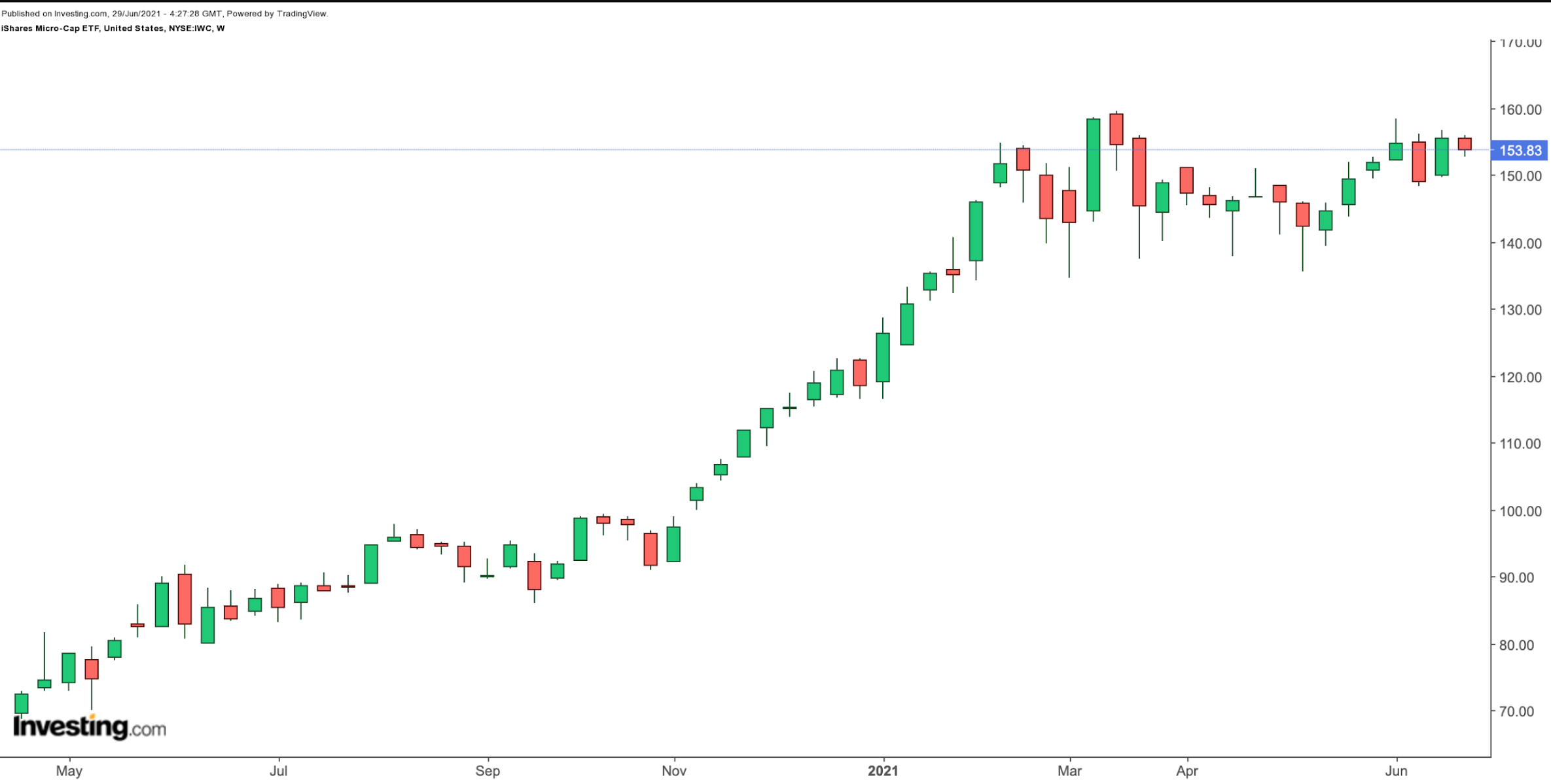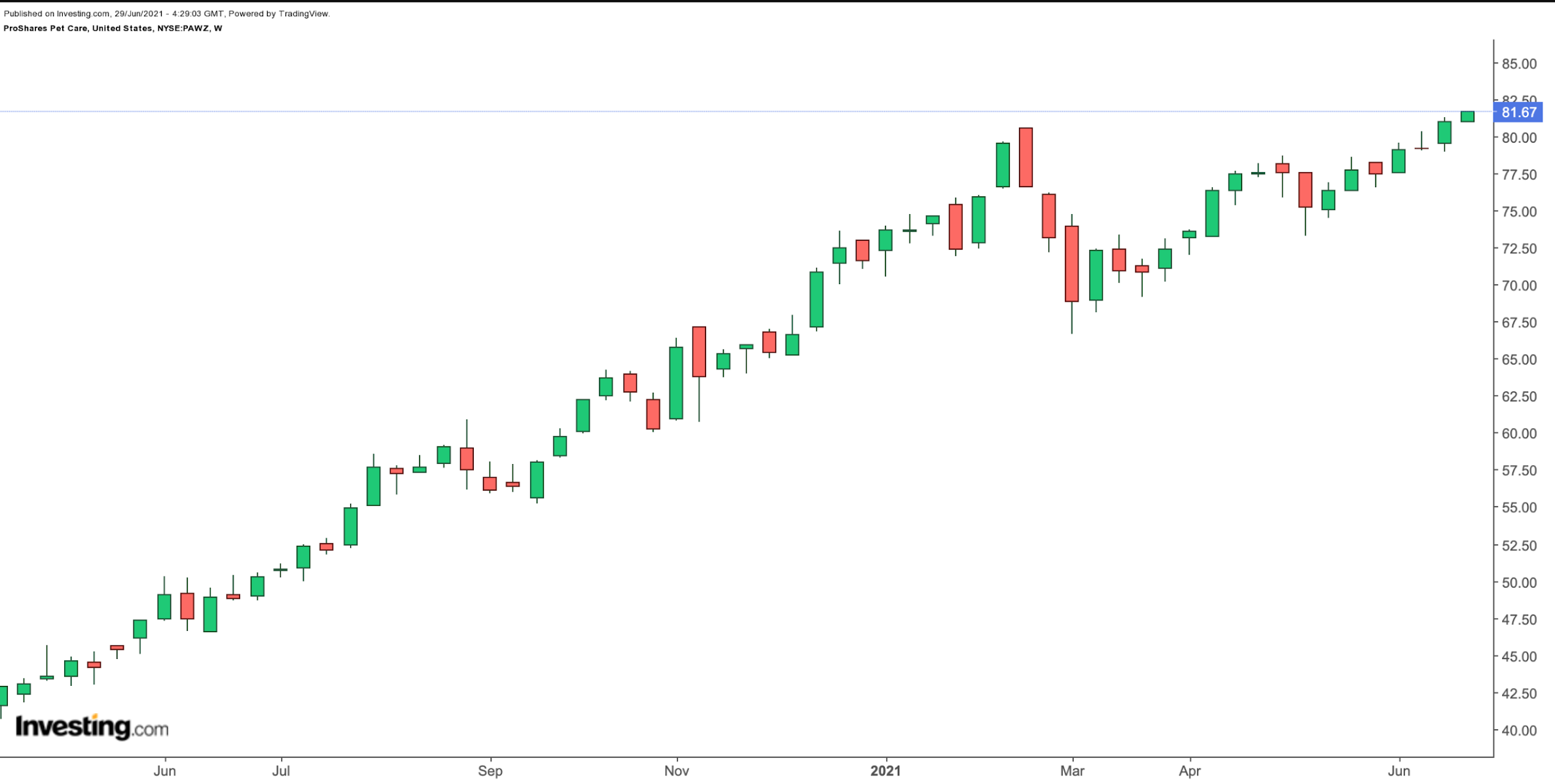Recent days brought new all-time-highs to the S&P 500 and NASDAQ 100, which are up about 14% and 12%, respectively, in 2021. Meanwhile, the Dow Jones Industrial Average, which hit a record high in May, has returned 12% so far this year.
July means the start of a new earnings season that could see increased choppiness as well as potential profit-taking in a range of stocks that have done well so far this year. Therefore, today we discuss two exchange-traded funds (ETFs) that could see short-term declines. Interested readers could regard such declines as a better opportunity to buy into either fund.
1. iShares Micro-Cap ETF
Current Price: $153.83
52-Week Range: $83.29 – $159.56
Dividend Yield: 0.75%
Expense Ratio: 0.60% per year
iShares Micro-Cap ETF (NYSE:IWC) gives exposure to US micro-capitalization equities. The fund, which seeks long-term growth, tracks the Russell Microcap Index, which is reconstituted annually.

IWC currently has 1,283 holdings. Since its inception in August 2005, net assets have grown to $1.5 billion. In terms of industries, health care has the largest slice (26.23%), followed by financials (18.35%), consumer discretionaries (16.57%), information technology (11.77%) and industrials (10.99%). The top 10 holdings comprise nearly 9% of the fund.
Among the leading names in the roster are the omni-channel video game retailer GameStop (NYSE:GME), which is heavily traded as a meme stock; mobile-advertising technology group Digital Turbine (NASDAQ:APPS); genome editing firm Intellia Therapeutics (NASDAQ:NTLA), online retailer Overstock.com (NASDAQ:OSTK), which has significant exposure to the cryptocurrency space; and the sell-side advertising platform Magnite (NASDAQ:MGNI).
In the past year, IWC is up 84% and year-to-date it has returned more than 30%. Trailing P/E and P/B ratios are 17.28 and 2.37, respectively. The fund saw a record high in mid-March.
Mid-caps offer high growth potential but also exhibit greater risk of volatility. Some consolidation is likely in the coming weeks. Long-term investors could consider buying in at around $145 or below. We like the sectoral diversity.
2. ProShares Pet Care ETF
Current Price: $81.67
52-Week Range: $48.68 - $81.68
Dividend Yield: 0.21%
Expense Ratio: 0.50% per year
Last year, pet owners in the US spent $103.6 billion on their much-loved animals. For 2021, analysts expect that number to reach $109.6 billion. Recent metrics also suggest, “Sixty-seven percent of US households, or about 85 million families, own a pet.”
The ProShares Pet Care (NYSE:PAWZ), which has 25 holdings, provides exposure to firms that should benefit from an increase in pet ownership. The fund was first listed in November 2018.

PAWZ, which tracks the FactSet Pet Care Index, currently has 31 stocks. About 71% of the firms come from the US, followed by the UK (15.42%), Switzerland (4.32%) and Germany (2.39%).
Idexx Laboratories (NASDAQ:IDXX), which focuses on animal veterinary, water testing and dairy markets; the leading manufacturer of medicine and vaccinations for pets and livestock Zoetis (NYSE:ZTS); Freshpet (NASDAQ:FRPT), which distributes fresh, refrigerated food for pets; and online retailer of pet products Chewy (NYSE:CHWY) top the list in the fund, whose net assets are close to $268 million.
Since the beginning of the year, the fund has grown by more than 13% and hit a new record high on June 28. Its P/E and P/B ratios of 35.10 and 6.13, respectively, point a frothy valuation level. A potential decline toward $75 would improve the margin of safety for buy-and-hold investors. The global long-term trends for the industry look robust.
